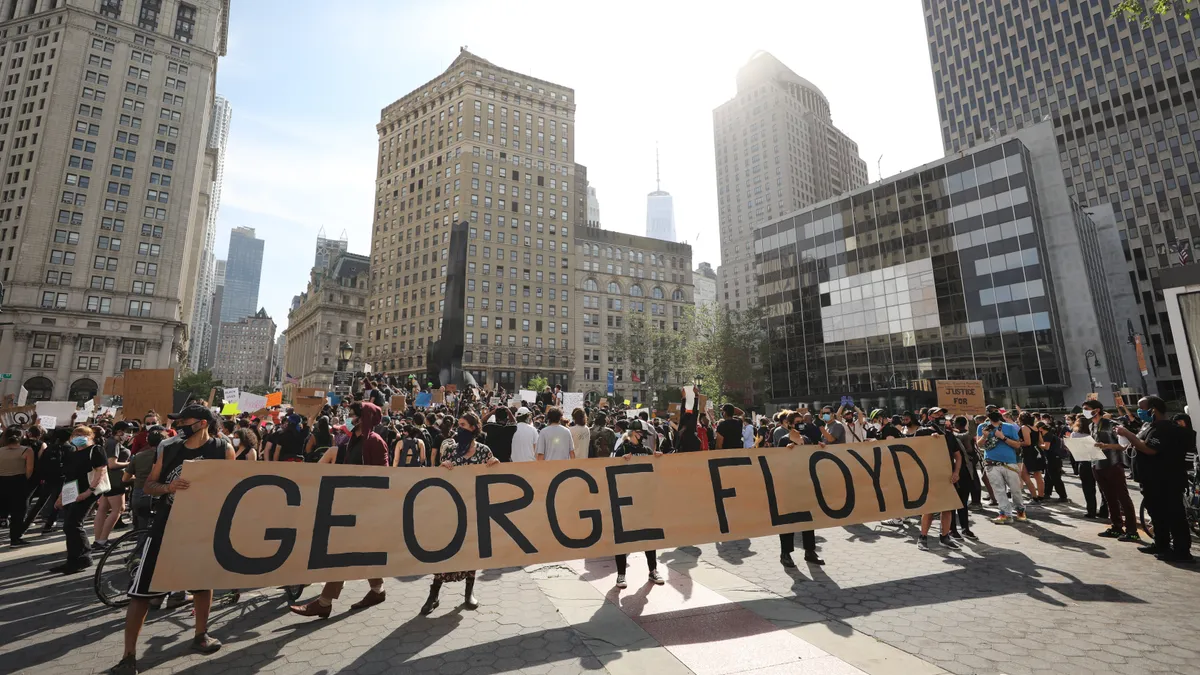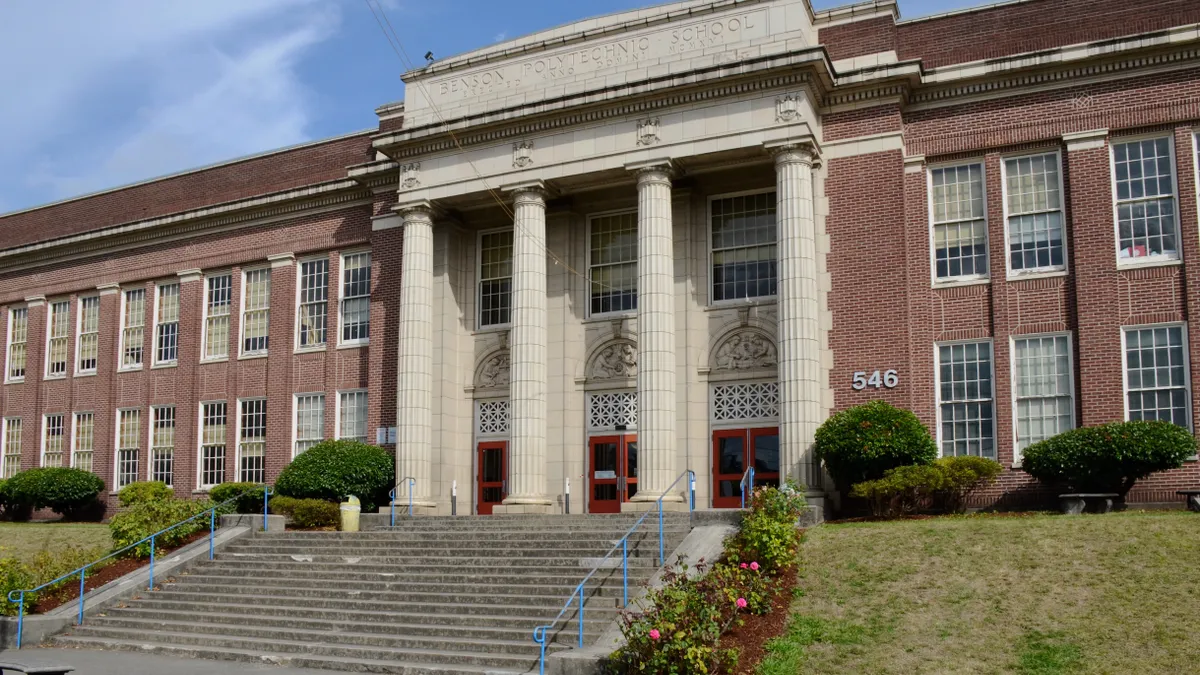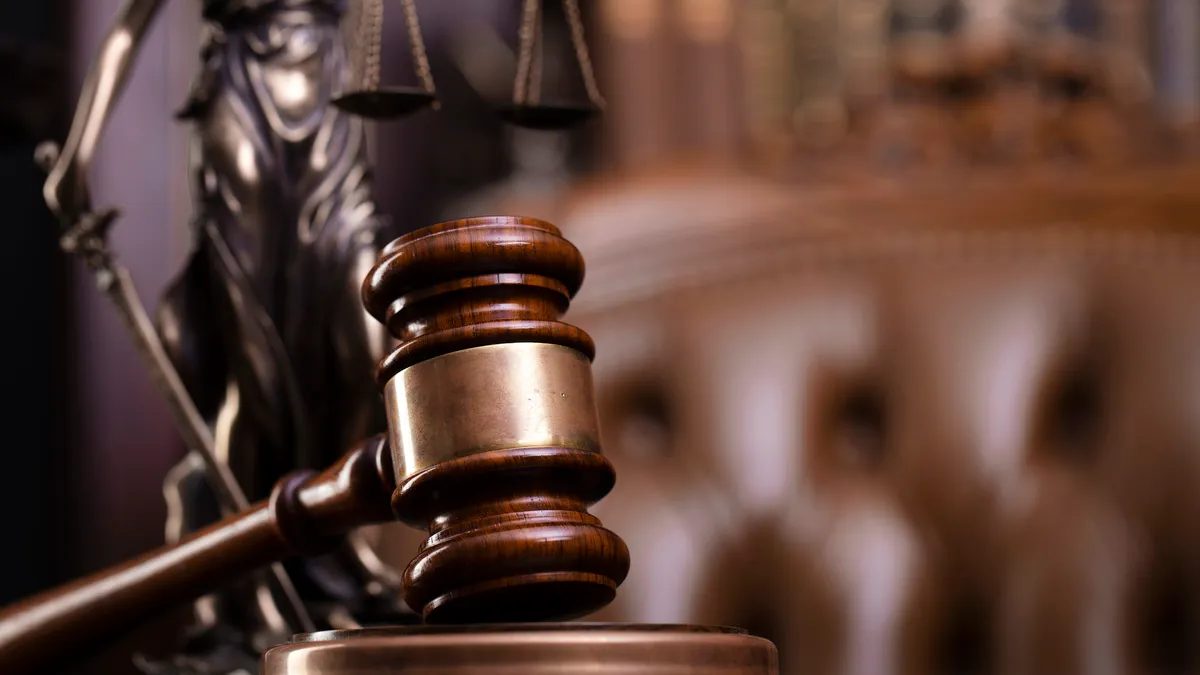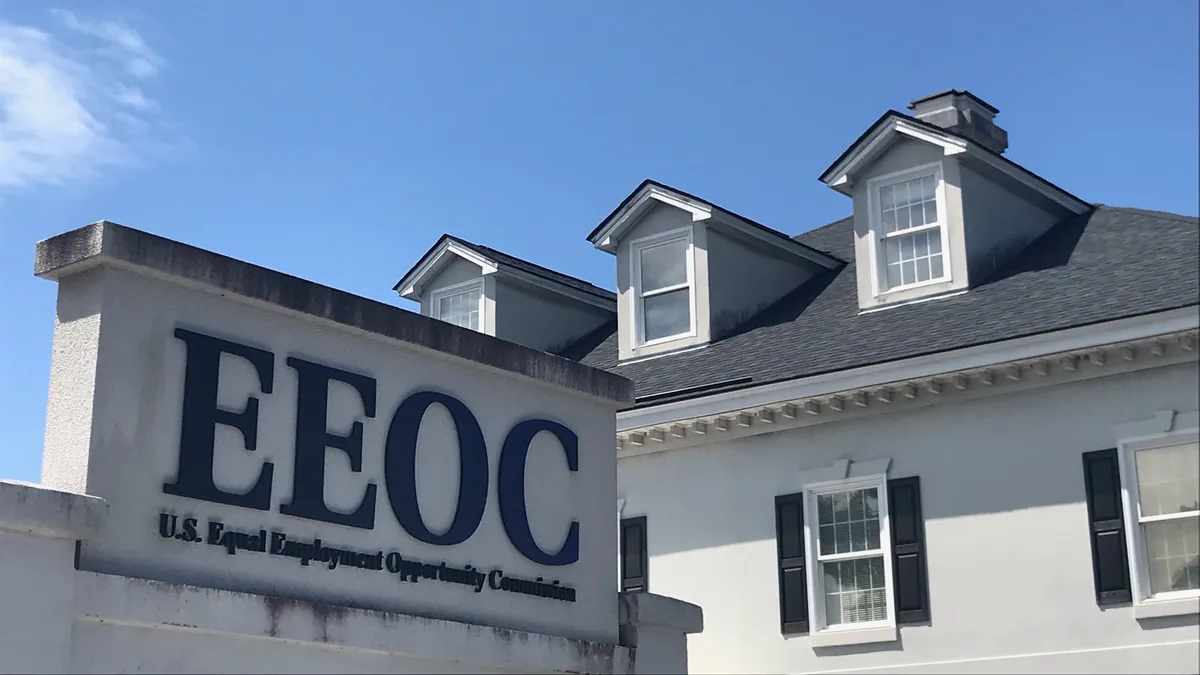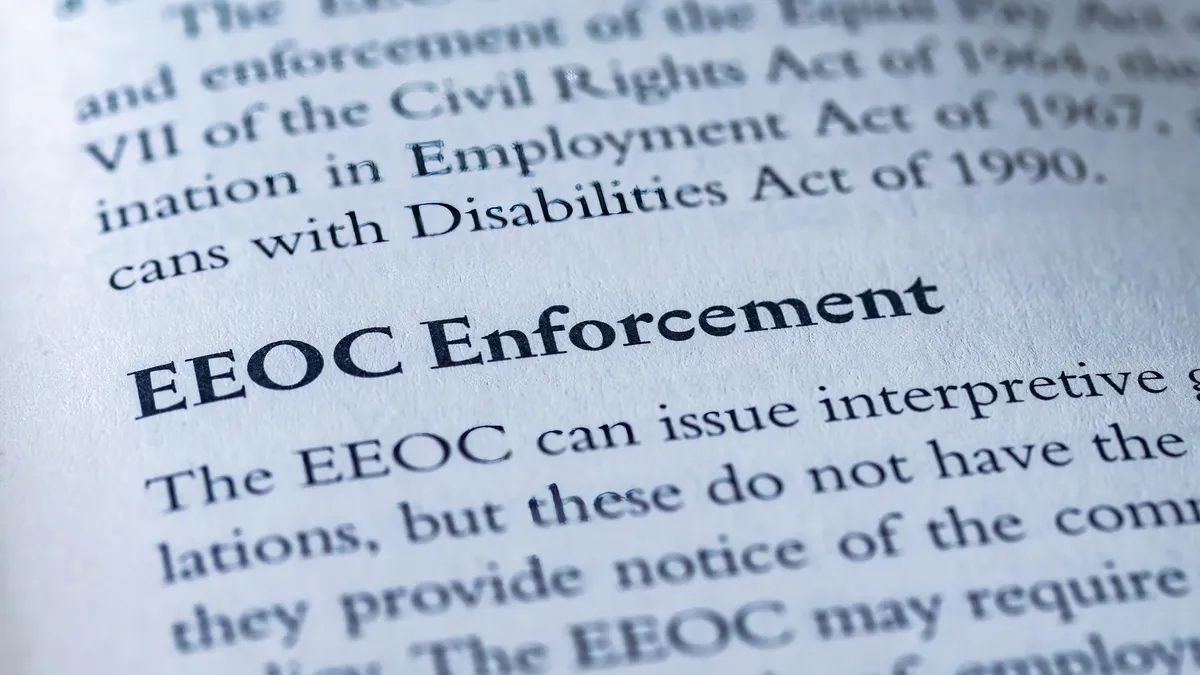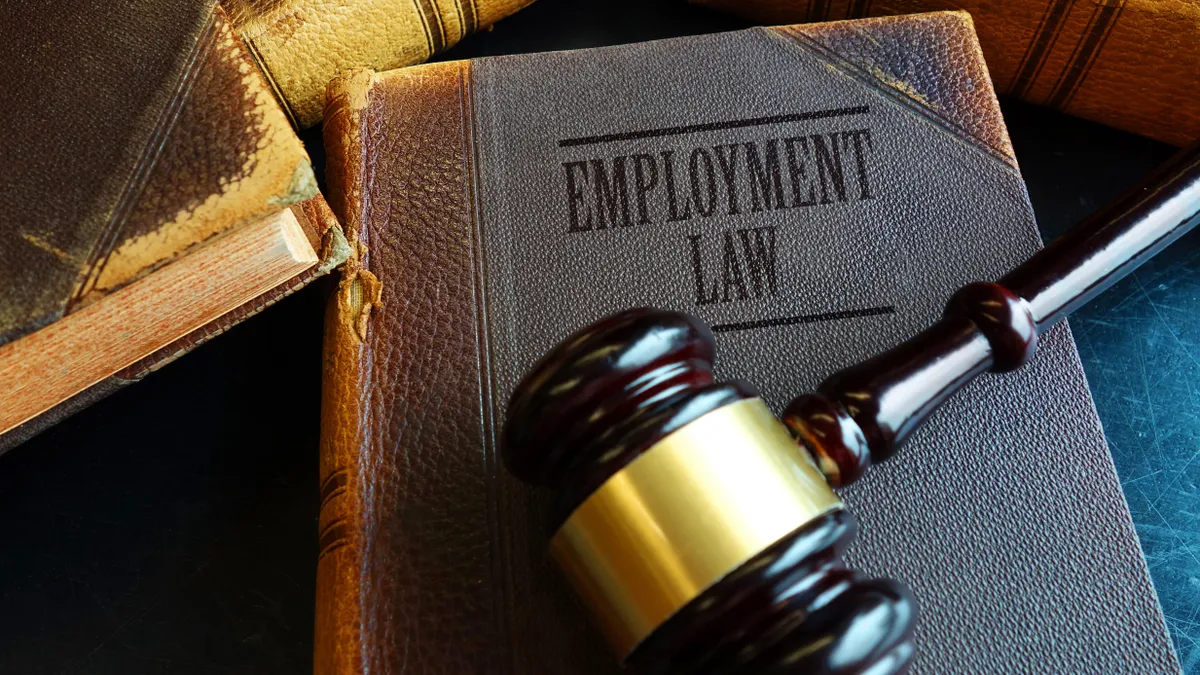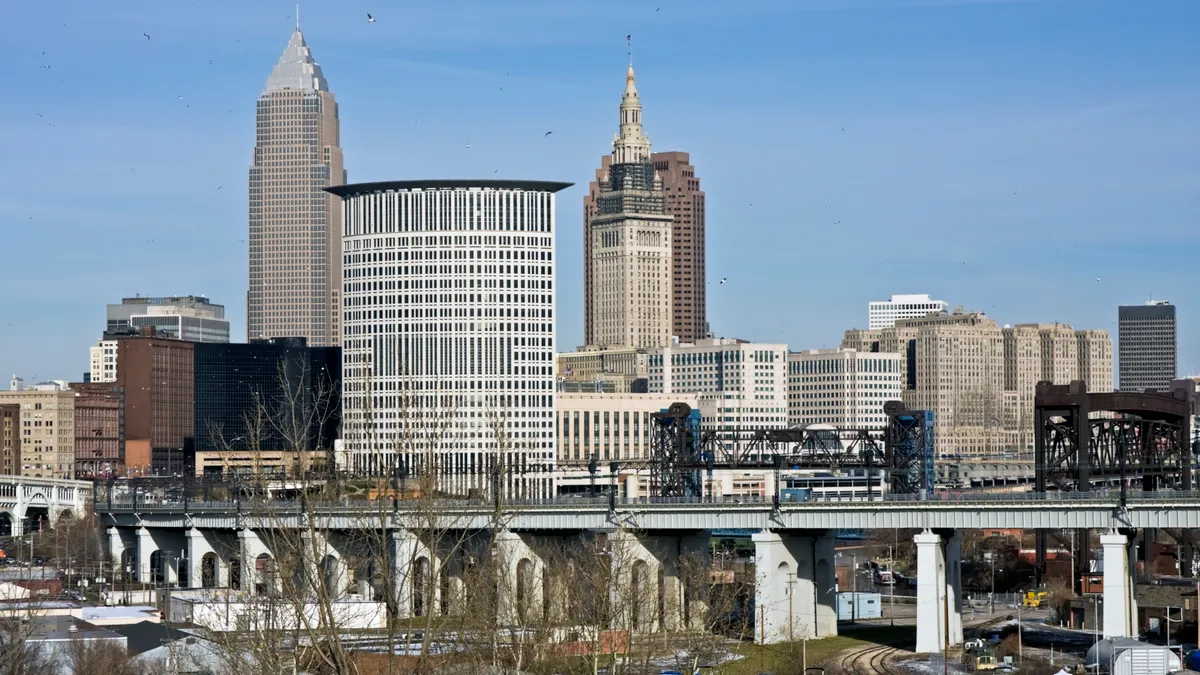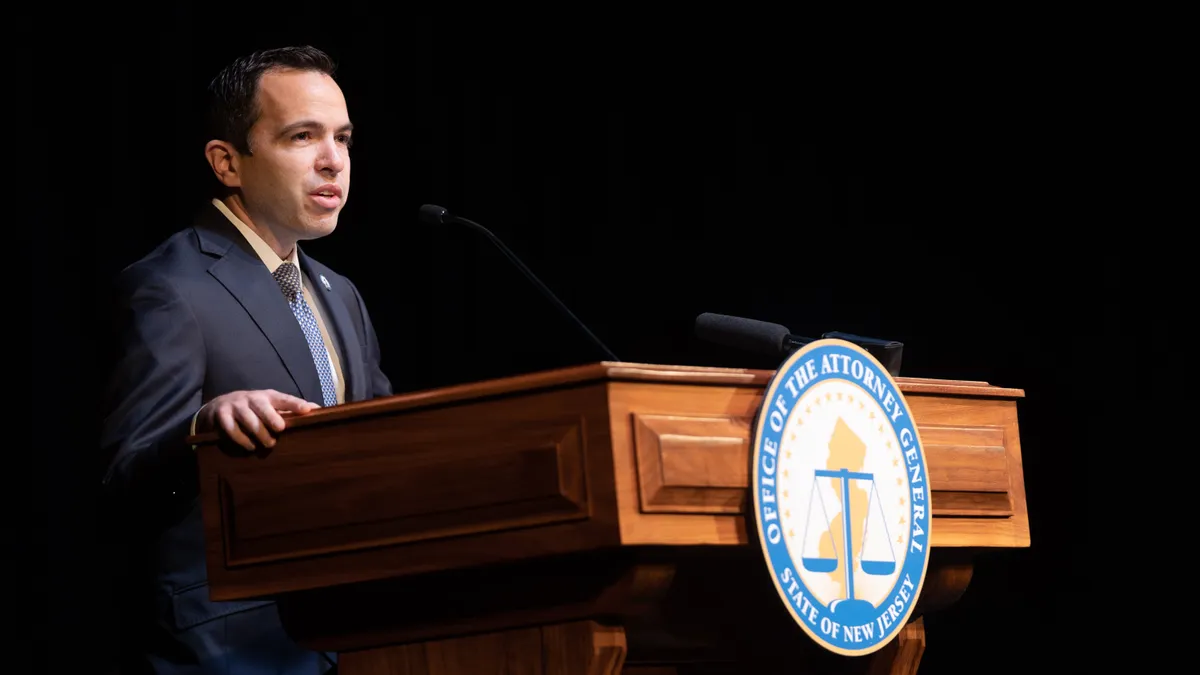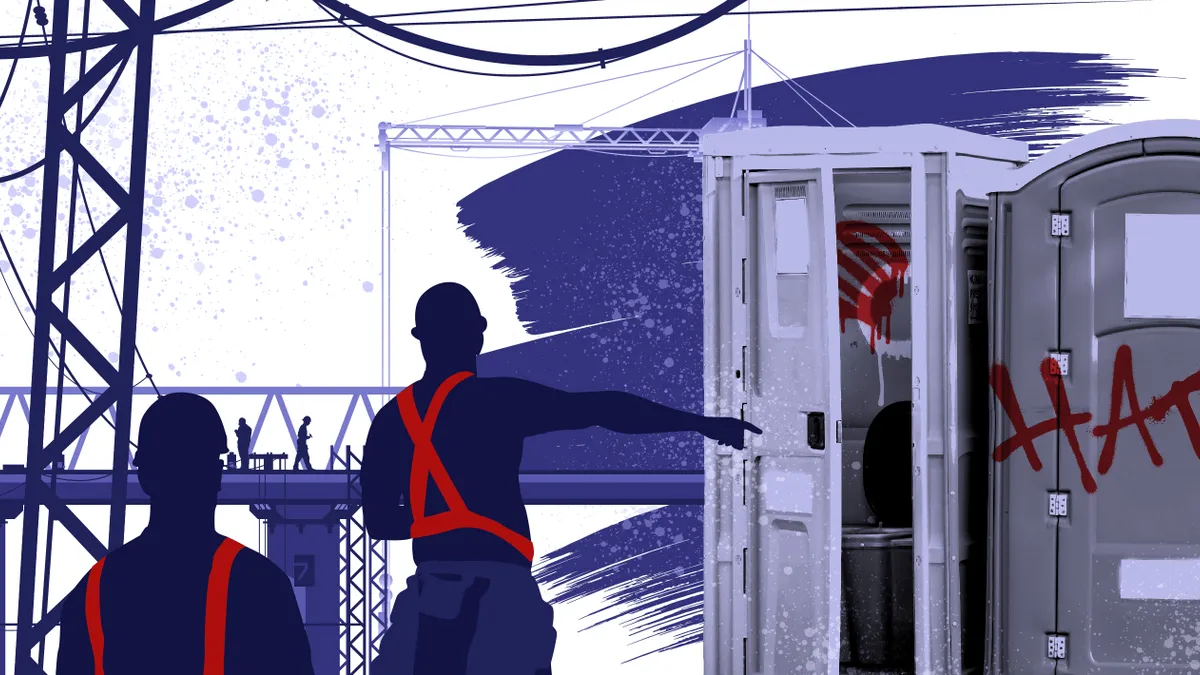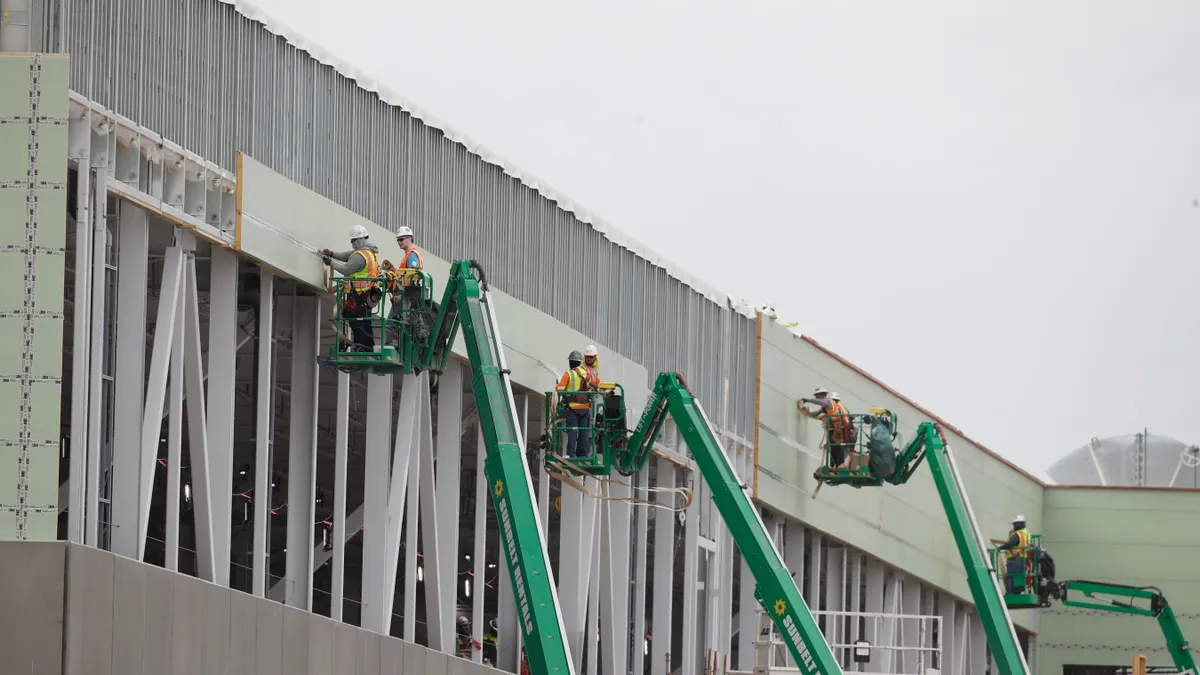Dive Brief:
- Five electricians sued Amazon and its contractors for subjecting them to a racially hostile work environment at a Connecticut jobsite where work was temporarily halted after workers and police discovered at least eight hangman’s nooses during construction.
- The lawsuit follows the completion of an Amazon distribution center in Windsor, Connecticut, where electrical workers of color discovered the nooses over several weeks in April and May 2021. The suit claims one of the employers advanced a theory to the FBI that the workers planted the items on site in order to be reassigned to higher-paying jobs.
- While the FBI and local police investigated the Windsor events and questioned a person of interest, no one was arrested for the display of the hate symbols, which made international news. In their lawsuit, the workers claimed law enforcement officials accused them of hanging the nooses, further subjecting them to workplace hostilities.
Dive Insight:
According to the lawsuit, filed Sept. 21 in U.S. District Court for the District of Connecticut, Amazon and its contractors — Fairfield, New Jersey-based RC Andersen and Holliston, Massachusetts-based Wayne J. Griffin Electric — should be held liable for the damages workers of color suffered at the site.
While news coverage of the events was intense once it became public, the lawsuit paints a picture of Amazon, RC Andersen and Griffin not responding adequately to the initial discovery of nooses, and only calling a full work stoppage after the eighth noose was found.
“The hangman’s noose is widely known to be a symbol of violence and hatred directed toward Black and Brown men,” the suit states. “The appearance of a noose, even one noose, in a workplace sends a clear message of hostility toward the men of color working there: ‘You are not welcome here, and you better watch your back.’”
The suit said the electricians were the second trade to enter the building, after ironworkers had raised the steel frame. Ironworkers on the Windsor site, the suit claims, displayed bumper stickers and helmet decals featuring Confederate flags.
On April 27, 2021, the suit claimed an electrician of color returned to his work area after lunch to find a noose hanging from the ceiling. When workers notified their managers of the noose, a brief, informal investigation followed, with one supervisor asking if anyone had photos on their phones, “because we don’t want Windsor news to find out about this,” according to the suit.
Indeed, according to the suit, the April 27 noose was the second to be found at the site, though the electricians didn’t learn about a previous noose that had already been reported until months later, the suit claimed.
Workers questioned
In response to the electrician discovering the noose, the suit said a Griffin foreman gathered the electricians of color to read a statement from RC Andersen about the company’s anti-discrimination policy. But because it was only read to workers of color, according to the suit, it sent the message on site that a noose in the workplace was only a concern for people of color.
In subsequent days, more nooses appeared on site and work initially stopped to increase security and install cameras at the job. Work stopped completely when an eighth noose was discovered.
While the workers who filed the suit were initially encouraged when they learned of the more serious response to the nooses, they subsequently realized law enforcement officials had been encouraged to look at them as the perpetrators of the crime.
When the FBI investigated, the suit claims, one of its agents investigated a theory offered by a Griffin manager that the electricians had actually planted the nooses on site in order to get reassigned to higher-paying, prevailing wage jobs.
The workers “presumed they would be treated like victims, not suspects,” the suit said. But once the FBI aggressively interviewed them, the workers realized that “Griffin and RC Andersen had identified them as potential culprits in the hanging of the nooses,” according to the suit.
“Plaintiffs were terrified to be in the crosshairs of an FBI investigation,” the suit claims. “As men of color from poor and working-class backgrounds, they all had tenuous relationships with law enforcement. Here, they had vocally complained as witnesses to hateful criminal conduct in their workplace and yet they were now being treated as perpetrators.”
The suit claims the workers were subjected to polygraph tests and that an agent took one of the worker’s phones, which ultimately didn’t contain incriminating information. The allegations against the workers added insult to injury, the suit said. The electricians continue to live in fear of the FBI, because its investigation remains open, according to the suit.
After the workers complained about the nooses, the suit claimed, they were reassigned to other jobs, but less desirable ones, a move they interpreted as retaliation for speaking up. The suit seeks compensatory and punitive damages from the firms, as well as attorney’s fees and costs.
Amazon, RC Andersen and Griffith did not immediately respond to requests for comment.








